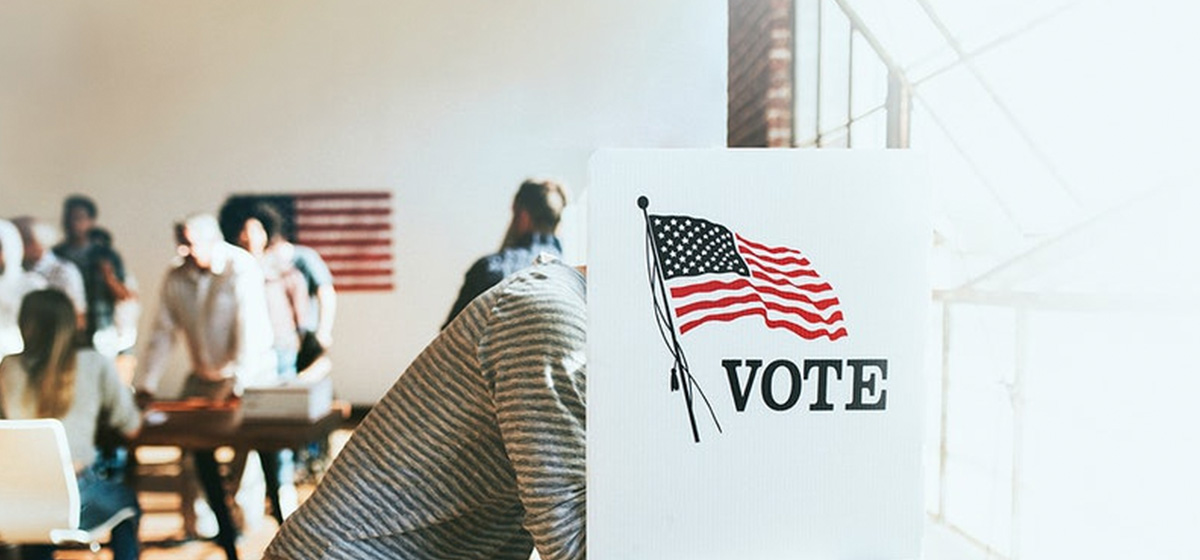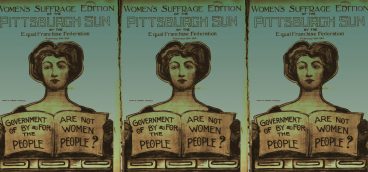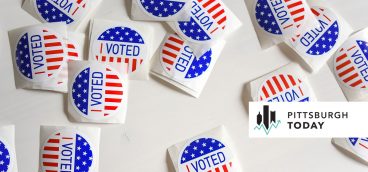The Day Pohla Smith Voted

Daniel Webster, the statesman, lawyer and orator, was one of early America’s fiercest advocates for democracy, and he knew full well the importance of voting. He called it “a social duty of as solemn a nature as man can be called to perform…”
I had occasion to think of Webster that October 2012 morning when my wife, Pohla Smith, uttered a seemingly simple declaration:
“I want to vote in the presidential election.”
Perhaps I shouldn’t have found this so unnerving. We were, after all, regular voters and believers in the process. I’m an old poli sci major and Pohla, though she gained prominence as a sportswriter and national turf writer for United Press International and later as a consumer health reporter for the Post-Gazette, actually began her career covering City Hall for the Newark Advocate in Ohio.
But the circumstances this time around were dramatically different. In August 2012, Pohla suffered an apparent seizure, collapsed and cracked her head on the sidewalk, suffering a significant closed-brain injury. While being treated at the Neuro-ICU at UPMC-Shadyside, she slipped into a coma and contracted pneumonia. She needed life support from both a ventilator and a feeding tube.
Not only was her very survival in doubt, but one of the neurosurgeons treating her also was concerned about what her life might offer if she did pull through. He shared those concerns with me one Saturday evening.
“I think we should consider discontinuing treatment,” he said.
“You mean, pull the plug?”
He nodded.
“She’ll never speak again. She’ll never understand the speech of others. She’ll never walk unaided. Her life won’t have any quality to it.”
We use the term “quality of life” pretty loosely, without really defining it. Now, I had to think about what specific capabilities would constitute quality of life. I spent that night agonizing over what I considered quality and, more important, what Pohla would consider quality if she were able to make this choice.
I thought I came up with some answers and sought out the neurosurgeon the next morning.
“Doc,” I said, “is there some chance that she’ll be able to eat without a tube?”
“Yes.”
“And is there some chance that she’ll be able to enjoy the company of others?”
“Yes.”
“Sounds like quality to me. Let’s press on.”
Over the next three months, Pohla spent about three weeks each at four facilities; her recovery went further than Dr. Doom ever would have imagined. At LifeCare, a now-defunct long-term acute care center in Wilkinsburg, they removed her ventilator. She emerged from her coma, spoke her first words—they were perfectly intelligible—and spent time outdoors, albeit strapped Hannibal Lecter-like to a chair.
At Seneca Place, a UPMC skilled nursing/rehab facility in Verona, she relearned to walk and entertained visitors.
At Healthsouth Harmarville, doctors removed her feeding tube, and we began eating in the cafeteria. She traveled the corridors by wheelchair, but she was able to walk unaided for short periods.
As for her cognitive rehabilitation, I’m not sure I can describe how wonderful, erratic and bizarre it was. If you want insight into the human mind, observe the damaged brain as it restores those memory chains that it can, bypasses ruined connections that can’t be repaired and moves on without memory where it’s irretrievably lost. We saw this in the exercises Pohla’s therapists designed to test and improve her memory.
“Who’s the vice president of the Unites States?” they asked.
“Joe Biden,” she snapped back without a moment’s hesitation.
“And who’s the president?”
A frown.
“That tall, skinny brown guy who’s losing his hair.”
Some of the rehab exercises were wickedly difficult. In one, the therapist wrote out the words to the Star-Spangled Banner, scissored them into three- or four-word sections and hid them throughout the room. Pohla’s job: find those snippets and reassemble them into the national anthem.
The exercise was designed to stretch her range of motion and field of vision, and she aced it. She did so well I thought we could go a step further.
“Let’s sing it.”
She shook her head.
“All those sporting events you covered,” I teased, “and you can’t sing the national anthem?”
“I guess I should have been paying attention instead of bee-essing.”
Even with these hiccups, her recovery went so well that Healthsouth had scheduled her discharge to home for mid-November. But the election was Nov. 6, and Pohla insisted she would vote. I was filled with dread and raised a host of objections. What if it rains and the sidewalks are dangerously slippery? What if you can’t handle the two flights of steps up to our voting station?
But she wouldn’t hear of it. With as little enthusiasm as I could muster, I asked Healthsouth if they would release Pohla for a few hours to vote. To my dismay, they agreed, provided I took her wheelchair with us.
Election-day weather was beautiful, erasing my fears on the slippery-sidewalk score. Nor did the steps to the Environmental Charter School in Park Place prove an obstacle; Pohla didn’t exactly bound up the steps, but she took them without incident, rendering unnecessary my newfound skills in wheelchair folding.
The only real issue came inside the voting booth itself. Under other circumstances, Pohla might have split her ticket. But she had been comatose, or nearly so, for much of the campaign; the names and issues down ballot wouldn’t have made much sense to her.
With a little help from an elections official, she selected the Straight Party button. That tall, skinny brown guy who’s losing his hair will never know the road one woman traveled to cast her vote for him.
After voting, we stuck around to chat with folks about the election and neighborhood comings and goings. It was a slice of Americana that I think would have pleased Webster, who, it is said, carried his passion for democracy beyond the grave. According to legend, if you walk past Webster’s final resting place in Massachusetts and summon his spirit, his voice booms out:
“Neighbor, how stands the Union?”
Sir, I am happy to inform you that the Union stands strong. It grew stronger still the day Pohla Smith, citizen, reported for duty.




